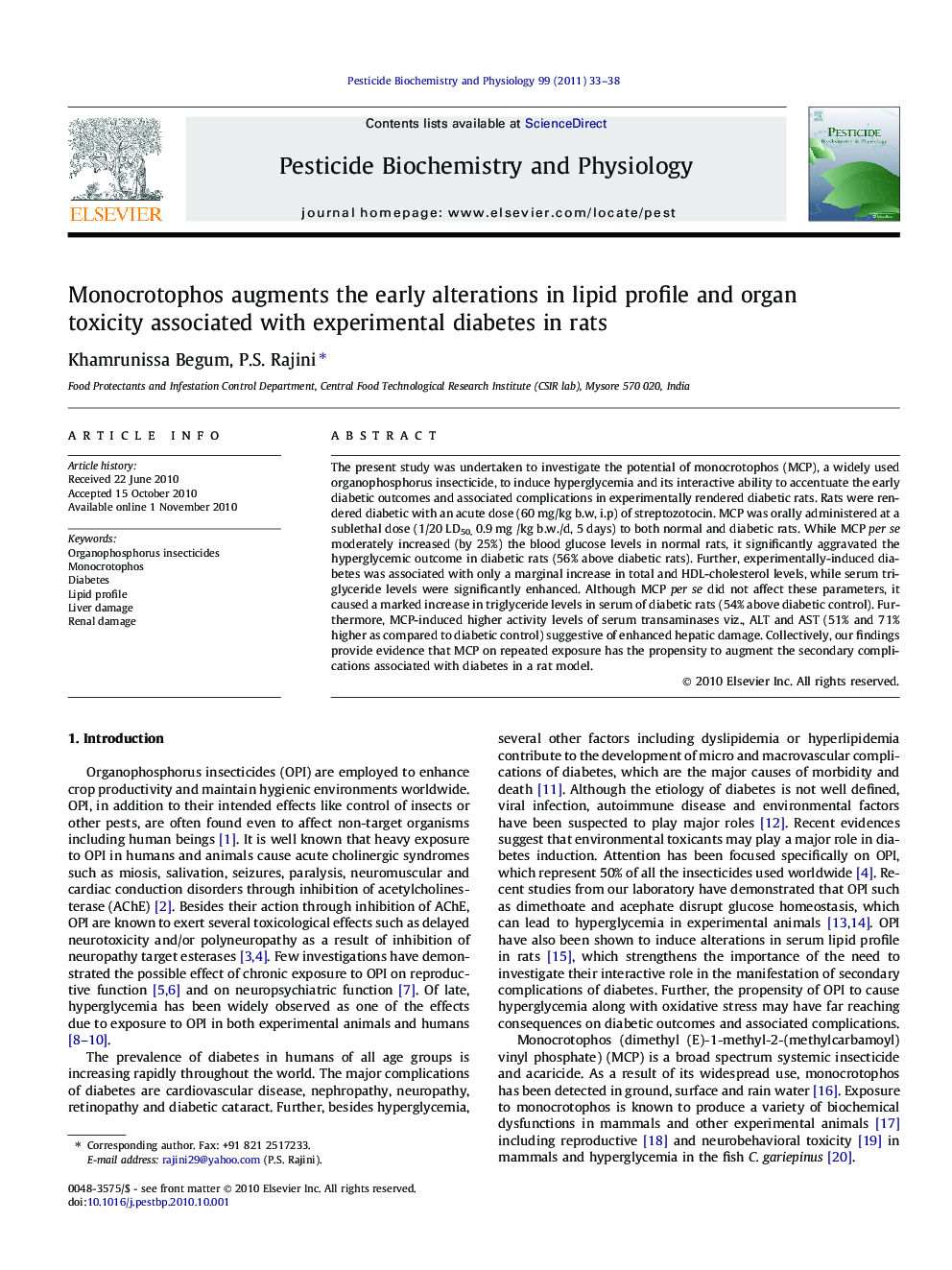| Article ID | Journal | Published Year | Pages | File Type |
|---|---|---|---|---|
| 2009952 | Pesticide Biochemistry and Physiology | 2011 | 6 Pages |
The present study was undertaken to investigate the potential of monocrotophos (MCP), a widely used organophosphorus insecticide, to induce hyperglycemia and its interactive ability to accentuate the early diabetic outcomes and associated complications in experimentally rendered diabetic rats. Rats were rendered diabetic with an acute dose (60 mg/kg b.w, i.p) of streptozotocin. MCP was orally administered at a sublethal dose (1/20 LD50, 0.9 mg /kg b.w./d, 5 days) to both normal and diabetic rats. While MCP per se moderately increased (by 25%) the blood glucose levels in normal rats, it significantly aggravated the hyperglycemic outcome in diabetic rats (56% above diabetic rats). Further, experimentally-induced diabetes was associated with only a marginal increase in total and HDL-cholesterol levels, while serum triglyceride levels were significantly enhanced. Although MCP per se did not affect these parameters, it caused a marked increase in triglyceride levels in serum of diabetic rats (54% above diabetic control). Furthermore, MCP-induced higher activity levels of serum transaminases viz., ALT and AST (51% and 71% higher as compared to diabetic control) suggestive of enhanced hepatic damage. Collectively, our findings provide evidence that MCP on repeated exposure has the propensity to augment the secondary complications associated with diabetes in a rat model.
Graphical abstractFigure optionsDownload full-size imageDownload as PowerPoint slideResearch highlights► Monocrotophos aggravated the hyperglycemic outcome in diabetic rats. ► Monocrotophos significantly increased serum triglyceride levels in diabetic rats. ► Monocrotophos aggravated hepatic damage in diabetic rats.
